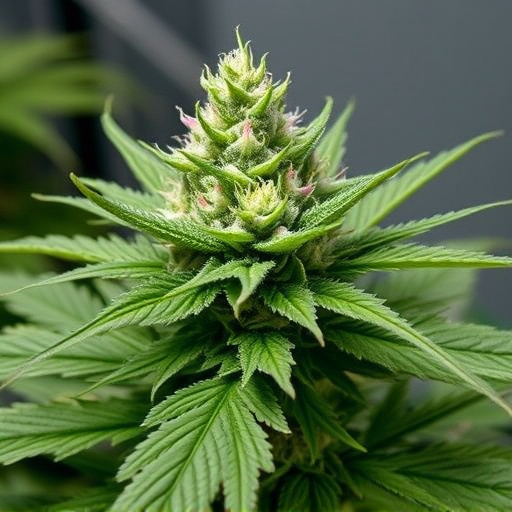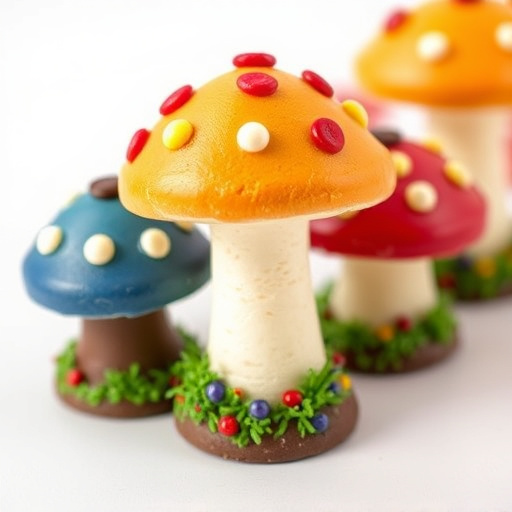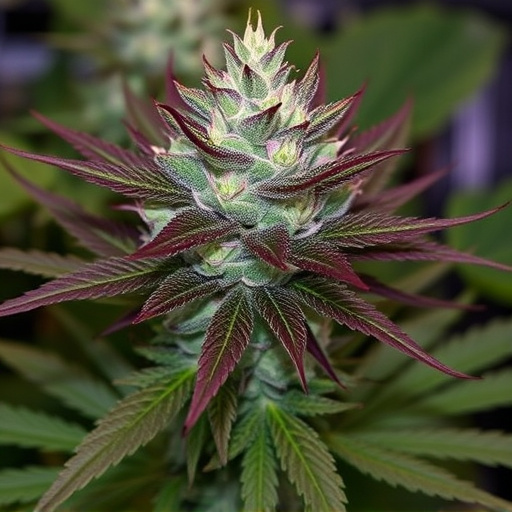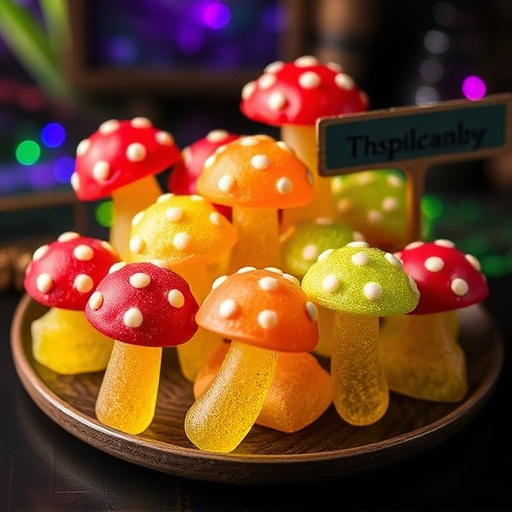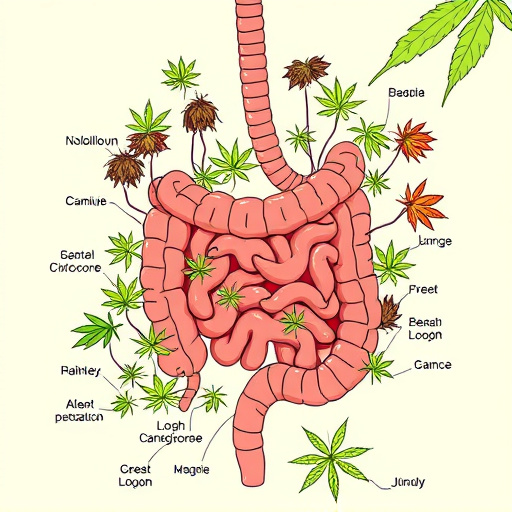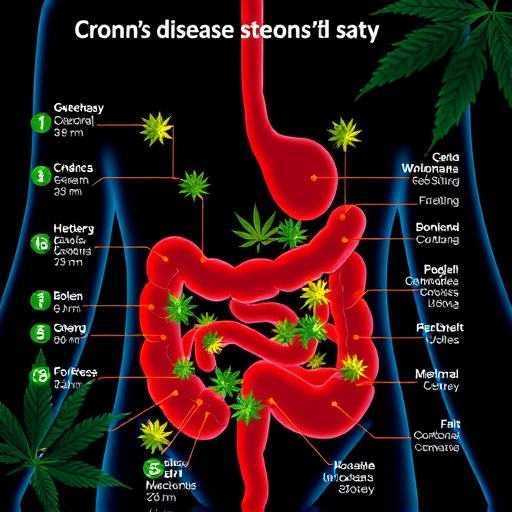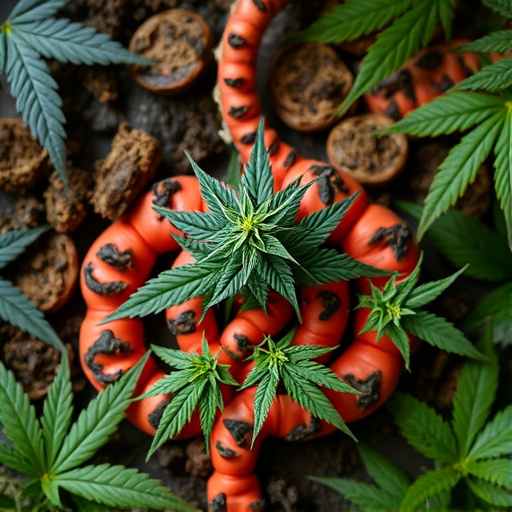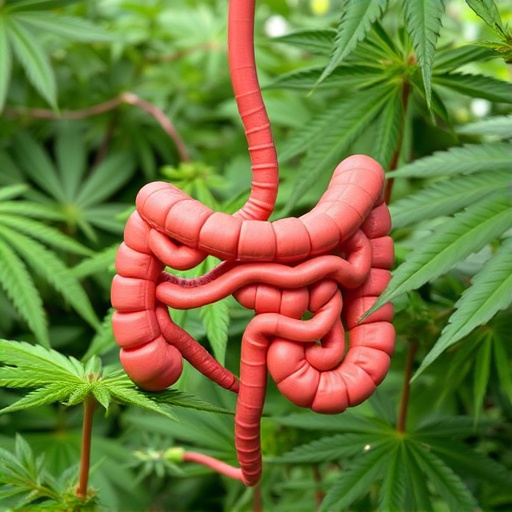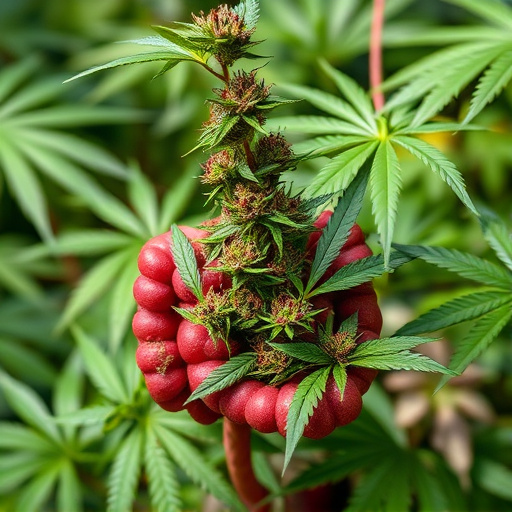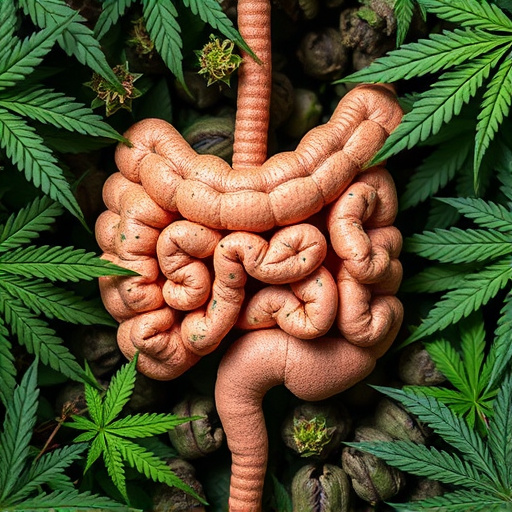Cannabis flower potency, driven by THC and CBD levels, impacts medicinal effectiveness and user health. High-potency strains can relieve chronic pain, anxiety, and Crohn's Disease symptoms, but high THC may induce anxiety. Choosing the right strain, like CBD-rich Granddaddy Purple or Charlotte's Web, offers anti-inflammatory benefits without psychoactive effects for Crohn's management. Optimizing cultivation techniques, including nutrition, temperature, humidity, and light cycles, enhances cannabinoid production in strains beneficial for specific conditions.
Looking to maximize the potency of your cannabis flowers? This comprehensive guide explores how to unlock the full potential of this powerful plant. We delve into the science behind cannabis flower potency and its profound impact on health, particularly in alleviating symptoms of Crohn’s Disease. Discover unique cannabis strains known for their anti-inflammatory properties, then learn proven cultivation techniques and environmental factors that can elevate your harvest’s effectiveness.
- Understanding Cannabis Flower Potency and Its Impact on Health
- Exploring Cannabis Strains for Relief from Crohn's Disease
- Enhancing Potency: Cultivation Techniques and Environmental Factors
Understanding Cannabis Flower Potency and Its Impact on Health
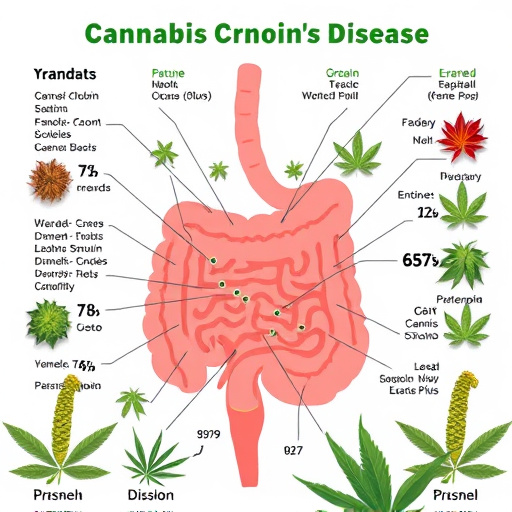
Cannabis flower potency refers to the concentration of cannabinoids, particularly THC and CBD, in a particular strain. Understanding this is crucial as it directly impacts both the plant’s medicinal properties and its effects on users’ health. High-potency cannabis can offer significant therapeutic benefits for various conditions, including chronic pain, anxiety, and even Crohn’s disease. However, it’s important to note that potency should be balanced with individual tolerance and needs.
For those using cannabis to manage Crohn’s disease or other conditions, selecting the right strain is key. High THC levels can induce euphoria and relaxation but may also increase heart rate and cause anxiety in some users. In contrast, CBD-rich strains offer anti-inflammatory properties without the psychoactive effects. Therefore, understanding your desired outcomes and the potential impacts on health is essential when increasing cannabis flower potency for medicinal use.
Exploring Cannabis Strains for Relief from Crohn's Disease
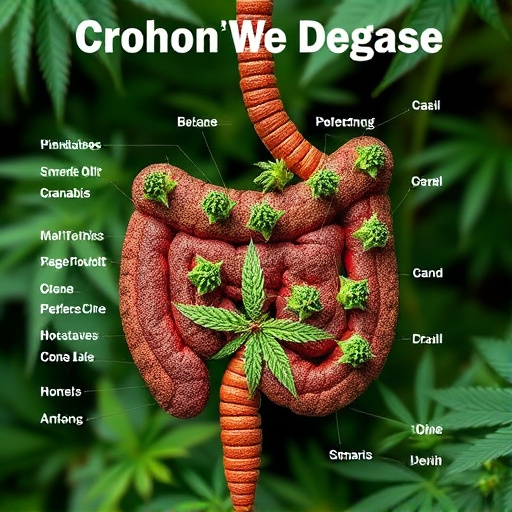
Cannabis has gained significant attention for its potential therapeutic effects, especially in alleviating symptoms associated with various medical conditions. One such condition is Crohn’s Disease, an inflammatory bowel disease (IBD) that causes chronic inflammation in the digestive tract. Research suggests that specific cannabis strains may offer relief from Crohn’s Disease symptoms.
Exploring cannabis strains known for their high CBD content and low THC levels can be particularly beneficial for patients with Crohn’s Disease. CBD is renowned for its anti-inflammatory properties, which can help reduce intestinal inflammation. Certain strains like Granddaddy Purple or Charlotte’s Web have been popularized for their ability to provide a calming effect without the intense psychoactive effects of high-THC cannabis. Incorporating these cannabis strains into a well-rounded treatment plan, in conjunction with medical advice, could potentially offer some relief from Crohn’s Disease symptoms.
Enhancing Potency: Cultivation Techniques and Environmental Factors

Enhancing cannabis flower potency involves a combination of meticulous cultivation techniques and strategic environmental factors. One effective method is to optimize plant nutrition by providing a balanced diet tailored to each growth stage. This includes ensuring adequate access to essential nutrients like nitrogen, phosphorus, and potassium, as well as micronutrients such as magnesium and calcium. Using high-quality organic fertilizers or nutrient solutions can significantly impact final terpene profiles and potency levels.
Environmental conditions also play a pivotal role in cannabis flower potency. Maintaining optimal temperature ranges (typically between 65°F to 75°F) and humidity levels (around 40-60%) during the flowering phase fosters robust plant development and increased cannabinoid production. Additionally, controlling light cycles with specific durations of darkness can trigger flowering, leading to more potent strains that are particularly beneficial for managing symptoms associated with conditions like Crohn’s disease, where enhanced cannabis potency may offer relief.
Cannabis flower potency plays a significant role in its therapeutic effects, especially for managing conditions like Crohn’s Disease. By understanding the impact of potency on health and employing effective cultivation techniques, growers can enhance the potential benefits of cannabis. Exploring specific strains known for their anti-inflammatory properties offers relief to folks suffering from Crohn’s. In terms of cultivation, optimizing environmental factors such as light, temperature, and nutrition can significantly increase cannabis flower potency, making it a game-changer in natural remedies.

